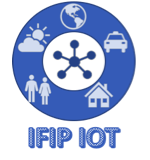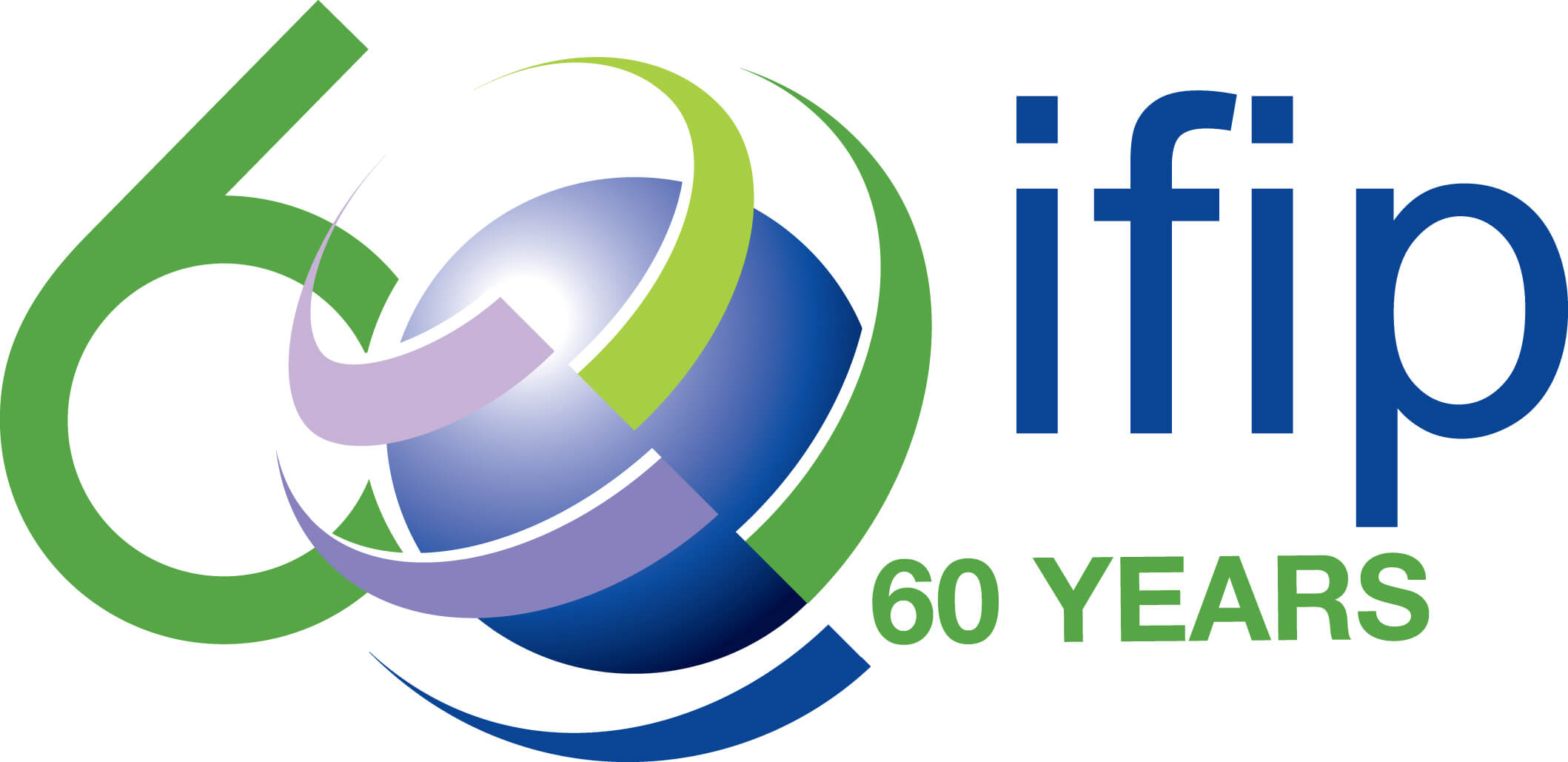Special session proposals should be submitted to Program Co-Chairs (Srinivas Katkoori, katkoori@usf.edu and Luis Camarinha-Matos, cam@uninova.pt). When submitting the session proposal, please use the above form and indicate the organizer(s) and, when possible, the identification of potential (expected) contributions (if already foreseen). Special sessions are included in the main conference and follow the same review process.
Acceptance of papers is based on the full paper (up to 18 pages). Each paper will be evaluated by three members of the International Program Committee.
Special session paper authors must submit by Easychair and email a copy to the special session chairs.
AI-Enabled Security for IoT
Abstracts are still solicited but not mandatory for submitting a full paper.
Full Paper Due - 01 July 2021
Notification of Acceptance - 31 August 2021
Deadline for final version - 15 December 2021
Scope
Artificial Intelligence (AI) encompasses a broad range of learning algorithms with important implications for diverse domains and computing applications. In particular, the security aspects of AI, from software and networks, to hardware platforms, have intrigued researchers in recent years, both from the perspective of potential attacks, as well as countermeasures. IoT systems, from the cloud to the edge, present unique, multiscale challenges for security and privacy. This special session will broadly solicit contributions that deal with how AI threatens traditional approaches to network, software, and hardware security, the research challenges this presents, and what opportunities exist for AI-enabled security for multiscale IoT systems. Topics of interest include, but are not limited to:
- AI-guided security verification for IoT software and hardware,
- AI-based security monitoring and intrusion detection,
- Big data analysis for IoT security using AI,
- Tools for scalable AI integration for IoT security,
- AI-based security protocols for IoT technologies,
- Risk and challenges in AI for IoT security,
- AI-guided hardware attacks,
- Current trends and future directions in AI for IoT security
This special session will serve as a venue for prospective authors whose cross-domain contributions may not fit well within the existing conference sessions on either security and privacy in IoT, or AI in IoT.
Session Organizers
Dr. Robert Karam, University of South Florida, rkaram@usf.eduDr. Tamzidul Hoque, University of Kansas, hoque@ku.edu
Topics / Keywords
Artificial Intelligence, Machine Learning, Hardware Security, Software Security, Network Security
Cyber-physical IoT systems in Wildfire Context
Abstracts are still solicited but not mandatory for submitting a full paper.
Full Paper Due - 01 July 2021
Notification of Acceptance - 31 August 2021
Deadline for final version - 15 December 2021
Scope
Wildfires are a universal problem that affects several areas of the globe with special incidence on countries with warm summers, such as, Portugal, Spain, Greece, Australia and United States of America. Prevention, early detection, and more effective fire suppression strategies are essential to change this dramatic tendency. Hence, it is urgent and mandatory that the scientific community provides sound, informative and efficient tools capable of improving decision making during wildfires crisis to minimize its negative consequences. Each year, wildfires are growing in number, scope, and deadliness, taking local governments to invest in new cyber-physical systems using internet of things (IoT) technologies that help to predict, detect, and manage fire incidents in forests. These new technologies can include IoT multi-sensor systems to collect field data, advanced processing of earth-observation satellite and UAV imagery, as well as artificial intelligence and interactive visualization techniques to create powerful decision support systems.
Session Organizers
Luis Oliveira, FCT-NOVA, CTS-UNINOVA, l.oliveira@fct.unl.ptAndré Mora, FCT-NOVA, CTS-UNINOVA, atm@uninova.pt
Topics / Keywords
- IoT and WSN to collect field-data during wildfire crisis;
- Artificial intelligence for sensorial data processing;
- Secure localization of IoT nodes in WSN;
- IoT node radio coverage in critical operations;
- Advanced processing of earth observation satellite and UAV imagery;
- Decision support systems for fire suppression management.
Integration of IoT in Critical Systems
Abstracts are still solicited but not mandatory for submitting a full paper.
Full Paper Due - 01 July 2021
Notification of Acceptance - 31 August 2021
Deadline for final version - 15 December 2021
Scope
The IoT artifacts are essential parts of systems responsible for critical processes or services. How to organize them as composing or shared elements is challenging. Despite the paramount importance of how IoT active things plug a communication network, namely which protocols and safety mechanisms they use, it is further essential to formalize which system abstraction is responsible for the IoT things and how other systems share them. With the trend for total integration as a critical requirement for industry 4.0, smart cities, and other complex systems, there is a need to position the IoT elements under clear “responsibility borders”, structuring the complex system of systems technology landscapes. The proposed session aims to discuss approaches and strategies to develop such systems. Despite significant standardization efforts, e.g., by the European Telecommunications Standards Institute (ETSI), the ongoing digital transformation needs novel models and open standards for integrating IoT components as active elements of multi-supplier technology landscapes. Among others, a critical question is how to model and construct a (critical) system of systems based on multi-vendor (product) and multi-supplier (product and services) IoT, clearly identifying the responsibility of each part.
Session Organizers
Luís Osório, ISEL Polytechnic Institute of Lisbon, Portugal, lo@isel.ipl.ptRicardo Rabelo, Federal University of Santa Catarina, Brazil, ricardo.rabelo@ufsc.br
Tiago Dias, ISEL Polytechnic Institute of Lisbon, Portugal, tdias@deetc.isel.ipl.pt
Topics / Keywords
- Responsibility and Governance Models.
- Integration Architectures.
- IoT Bus.
- IoT as a Service.
- Cyberphysical System (CPS).
- Informatics System (ISystem) System of Systems (SoS).
- IoT and Cloud Computing.
- Mobile Computing and IoT.
- IoT Open Standards.
- IoT Protocols and Applications
- Industry IoT and Control, OPC-UA.
- Systems of Systems and IoT Open Architectures.
- Critical Systems and IoT.
Modernizing agricultural practice using IoT
Abstracts are still solicited but not mandatory for submitting a full paper.
Full Paper Due - 01 July 2021
Notification of Acceptance - 31 August 2021
Deadline for final version - 15 December 2021
Scope
Through Horizon Europe financing program the EU acknowledges the importance of focused research and testing on the Internet of Things (IoT) to support the development and take-up of the technology in different economic sectors (industry, agriculture, logistics, transport). In conditions of population increases, achieving a more sustainable world is based on smart farming, precision agriculture which requires reducing human interventions in practice and increasing the production. Specifically, IoT systems and drones are used in precision agriculture in applications like crop irrigation planning, plant disease detection, soil texture mapping, monitoring crop maturity for correct assessment of optimal harvest time, monitoring the production in order to plan the necessary equipment for harvesting the production, its transport, respectively the storage. Images collected with drones can lead to a correct estimation of biomass or identifying some fruits diseases. The automation harvesting using mobile robots and robotic arms can reduce the human labor and increase the productivity. This special session aims novel solutions based on the Internet of Things, smart drones, robotics or AI for the modernization of agriculture practice and livestock. Such solutions are needed especially in countries where digitalization has less penetrated agriculture given the existing imbalance in agricultural development at least in Europe but also worldwide.
Session Organizers
Adrian Florea, Lucian Blaga University of Sibiu, adrian.florea@ulbsibiu.roLasse Berntzen, University of South-Eastern Norway, Lasse.Berntzen@usn.no
Topics / Keywords
- IoT and WSN to collect data from land field about soil and crop status
- IoT systems and smart drones used in precision agriculture
- Cyber-physical System (CPS) in agriculture
- Automation of agricultural processes using robots
- IoT systems and Artificial intelligence algorithms applied in food process monitoring and control
- Predictive analytics for smart farming
- Green IoT for Sustainable Development
IoT for Smart Health
Abstracts are still solicited but not mandatory for submitting a full paper.
Full Paper Due - 01 July 2021
Notification of Acceptance - 31 August 2021
Deadline for final version - 15 December 2021
Scope
The convergence of the modern healthcare environment and IoT has created pervasive smart health infrastructure with applications ranging from wearable sensors to remote patient monitoring in real-time to elderly care facilities for long-term supervision. Such transformation has changed the way to create a more personalized and connected healthy lifestyle. The promise of e-health initiatives (e.g., telehealth, mobile health, etc.) leverages relevant technologies (e.g., Artificial Intelligence, Machine Learning, Data Analytics, Deep Learning, etc.) edge-level devices to harness sensing, prediction, analysis, and intervention. Such promise also poses challenges in the security and privacy of empowered patients and healthcare providers. This special session invites practitioners and researchers' submissions on how IoT has stimulated smart health, including theories and methodologies on how to architect, design, and deploy effective IoT systems and the relevant challenges for safe, secure, privacy-preserving coordinated health care systems. Topics of interest include, but are not limited to:
- Edge-coordinated health applications,
- System architecture of IoT for smart health,
- Theories and models of AI for smart health,
- Decision support systems and Tools for smart health,
- Smart health analytics and informatics,
- Supply chain security for safe and reliable smart health,
- Operational and financial implications of smart health
Session Organizers
Dr. Srinivas Katkoori, University of South Florida, katkoori@usf.eduDr. Saraju P. Mohanty, University of North Texas, saraju.mohanty@unt.edu
Dr. Sheikh Ariful Islam, University of Texas Rio Grande Valley, sheikhariful.islam@utrgv.edu
Topics / Keywords
Mobile Health, Telehealth, Health Analytics, Wearable Technology, Assist Living, e-health security


 Download Form
Download Form